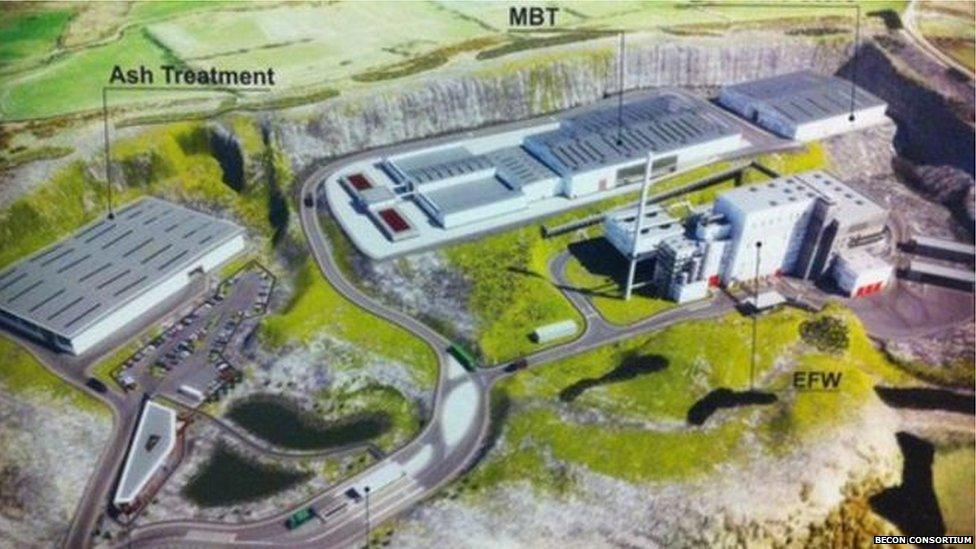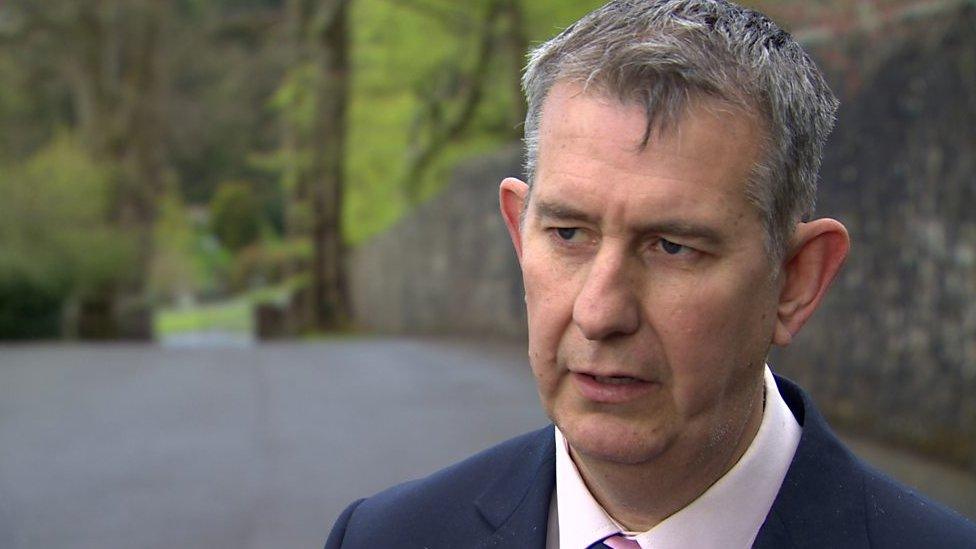Recycling: £240m incinerator 'is essential to meet NI targets'
- Published

An artist's impression of the proposed waste facility
The company behind a controversial incinerator referred to as a "waste monster" by a government minister has published a report which says the facility is "essential".
Indaver, which wants to build the £240m project on the outskirts of Belfast, commissioned the report.
It found that it cost NI councils £16m a year to export household rubbish for incineration overseas.
The report finds councils are spending £30m a year sending waste to landfill.
This is despite the fact that recycling rates in Northern Ireland are higher than ever before at around 50%.
The proposed project would see recyclables removed from household waste on site, before residual waste was burned in the incinerator.
The research, by a firm of business consultants, says EU targets transposed into UK law have set recycling targets of 65% by 2035.
The same regulations mean that only 10% of waste can be sent to landfill by the same date.
The report says that means Northern Ireland must still find a sustainable option for between a quarter and a half of all waste produced by households.
Around 1m tonnes of waste are produced by homes in Northern Ireland every year, with around a quarter land filled.
Backers claim the waste incinerator and accompanying recycling plant can divert 300,000 tonnes of that from landfill.

Edwin Poots says he is open to being convinced about the project
The project, proposed for a former quarry in Glengormley near Belfast, has been on a roller coaster since its inception.
It was rejected by a former environment minister, then approved on appeal by a senior civil servant during the collapse of Stormont, before that approval was overturned in the courts, which said he did not have the power to approve it.
It is now making its way through the planning process again.
There has been a trenchant campaign against the incinerator plan, with opponents citing concerns about public health, the impact on recycling rates and traffic concentrations on roads leading to the plant.
It is designed to take waste from six council areas, including some of our most heavily populated ones.
'Currently not convinced'
Earlier in June, Environment Minister Edwin Poots is reported to have described the facility as a "waste monster" during a meeting with objectors.
He later said he was "currently not convinced" but was "convince-able" about the viability of the project.
As a regionally significant planning application the final decision will fall to the infrastructure minister.
It had previously been recommended for approval by the Planning Appeals Commission and backed by Mr Poots' own officials in the Department of Agriculture, Environment and Rural Affairs (Daera).
Indaver's report claims that as well as helping to hit landfill diversion targets, the project can sustain more than 300 direct and indirect jobs once operational.
It also says incineration is a well-established technology with 50 plants in Great Britain and several on the island of Ireland.
- Published24 June 2020

- Published10 April 2019
- Published6 July 2018

- Published14 May 2018
